#ELUCID
Text
Earl Sweatshirt: A Geography of Grief and Growth

I made myself the poet of the world. The white man had found a poetry in which there was nothing poetic….I had soon to change my tune.
—Frantz Fanon, Black Skin, White Masks (1952)
I suggest that we do not necessarily need to hear and know what is stated in its entirety, that we do not need to “master” or conquer the narrative as a whole, that we may know in fragments.
—bell hooks, “Teaching New Worlds/New Words” (1994)
Breakin’ ’em down to micro-fragments.
—Saafir, “Battle Drill” (1994)
What is asked of me is not to ascend but to descend.
—Robert Bly (1990)
1.
Earl Sweatshirt’s arc, swerving and dervishy, isn’t difficult to see, as we’ve witnessed it with him—we’re either interlocutors or interlopers, both with questionable motives. So when Earl looks back on school daze, as he does on “OD,” we look back with him (though ours is often an imperial gaze [HOW COULD IT NOT BE?]). We tee-hee and titter as we hear that “somebody tooted in the student commons,” tooted being the most puerile word for gas he could have chosen. An array of scatological options were ignored. It’s a deliberate gesture toward juvenilia. He doesn’t want his expression to be too mature, ha. He wants to welcome you to the romper room, ha. Remaining a kid until the moment he expires, apparently. So he sets the adolescent scene: the student commons. “The bell rang,” and the accused student was spared the prolonged opprobrium. In about four seconds, the student will begin to post. He “went home and argued in the comments,” channeling his embarrassment elsewhere, talking shit (shit) on the internet behind the safety and quasi-anonymity of a screen—an odd facade. He can walk right up to your avi and diss you. That’s his philosophy. The public humiliation replaced with a private self-possession. The discomfort of the crowd exchanged for the solace of solitude.

2. DID AN ANGEL SPEAK?
The sonics of “tooted” and “student” are twee, giggle-inducing. We laugh along with the concatenation of m and n phonemes [somebody | student | commons | rang | went | home | then | in | comments]. The near-homophonous commons and comments scan hysterical. With “OD,” it’s easy to confuse adolescence with adulthood. That “somebody” committed this social transgression seems defensive. Maybe it was him—the subject, Earl, Thebe—seeing as how the rest of the song is delivered in the first-person. Embrace the Age of Immaturity. Channel the Fat Boys: Darren Robinson’s flatulent beatbox. Place it beside the disorderly lyrics that Bobbito spits: “I write my own shit from finish to start, / Diminish the heart, / I eat a knish and then I fart.” Like the Cenobites, Earl kicks a dope verse, and only that. “I keep my sentences short,” he says on “EAST.” Beauty is brevity, brevity beauty. A “brevity pack,” as Earl has referred to the Feet of Clay songs. He strives to be live ’cause he got no choice. He runs his own business like James Joyce. In A Portrait of the Artists as a Young Man, a similar flatus incident unravels. At Clongowes Wood College (Stephen Dedalus’s Coral Reef Academy), a “stout student who stood below…on the steps” by the name of Goggins “farted briefly.” Sonically, the sentence shares much with Earl’s opening line. Dixon asks, in a “soft voice,” “Did an angel speak?” But the others react with bellicosity and name-calling (stinkpot; flamingest dirty devil). Goggins doesn’t retreat home; he simply asks, “It did no one any harm, did it?” You still bet that you can harm me, but you don’t alarm me, Goggins might say another way, reprising Del the Funky Homosapien, echoplexing Masta Ace.

3.
Earl “watched the doppler move,” the wavelength shift—the siren song of the “toot,” something insidious—or maybe it’s just the tremors we’re feeling. Woop, woop: that’s the sound of the beast, KRS would say. The frequency shivers. The shift, the movéd doppler, means Earl is immediately older, he’s the child who “get[s] introduced to violence,” even if he acknowledges the line was inspired by his nephew on a playground in South Africa, experiencing apartheid reincarnate as a whiteboy cuts him in line for the slide. Cranly, bullying Goggins, “shove[s] him violently down the steps.” The doppler moves. It slides into violence—like the violence visited upon the MOVE compound located at 6221 Osage Avenue in Philly in 1985. Gradations of black/white. ELUCID mentions the “gray on [his] face showing age” on his Osage (2016) project. Isn’t it strange—how the youngins can turn cold, hoarfrosty, in an instant? The grayscale cover to ELUCID’s tape is graced by a photograph of Birdie Africa, the sole child survivor of the siege. The bone fragments of the MOVE children have since been used in anthropology courses at UPenn and Princeton—case studies. It’s a good trope. Fascinating stuff.
4. TRYIN’ TO TRANSFORM YOU BOYS TO MEN LIKE DAYCARE
When JuJu of the Beatnuts asked, You want pain?, he wasn’t referencing the dramatical-traumatical pain Earl negotiates—JuJu’s question posed a ruffneck and ruffian pain on “Watch Out Now.” Somewhere closer to Marcy, where Jay-Z’s streets was watching. Earl clocks minutes, anaphoric with what he watches (I watched the doppler… / I watched a child…), much like Dylan’s portentous hard rain in which he saw endless racialized visions: “I saw a newborn baby with wild wolves all around it”; “I saw a black branch with blood that kept drippin’”; “I saw a white ladder all covered with water.” For Earl, the ladder is a slide. The saw is watched. Witnesses all.

5.
In “Theory as Liberatory Practice,” bell hooks writes that she “came to theory because [she] was hurting”: “I wanted to make the hurt go away. I saw in theory then a location for healing.” hooks says that she “came to theory young, when [she] was still a child,” citing Terry Eagleton who argues that “[c]hildren make the best theorists.” Children, Eagleton insists, possess “a wondering estrangement.” No wonder, then, that “since a jit” Earl has found no use in “giving up.” He rather make it make sense.
6.
I beat you to the point. Having gained experience, there’s nothing you can tell Earl that he doesn’t already know, that he hasn’t already seen. He’s seen enough, had enough. He doesn’t await the mob’s pursuit; he places the noose on himself, he RE: DEFines it within his own lexicon. His noose, therefore, “is golden.” He’s a young youth, rockin’ the gold [noose], DEATHWORLD goose. He speaks with criminal slang, with a split tongue like ELUCID. Where ELUCID was “true and living, actual—no dull axes, owner of all heads,” Earl is “true and living, lonesome,” with no skulls to keep him company. He has to square up with the “pugilistic moments” on his own.
7. I AM OLDER THAN I ONCE WAS AND YOUNGER THAN I’LL BE
I’m thinking of “The Pugilist at Rest” (1991) by Thom Jones, whose epileptic protag describes a “grainy black-and-white photograph” of the bronze statue called The Pugilist at Rest. The pugilist, with a pocketful of mumbles, has “slanted, drooping brows that bespeak torn nerves” and a forehead “piled with scar tissue.” Torn nerves and scar tissue—sounds like the physical manifestations of grief. And, yes, Earl has grieved, and he continues to grieve—as listeners, we’re accustomed to his grief pedigree, as per Ka. In the past, Earl was “panicking a lot”—he just “want[ed] [his] time and [his] mind intact.” That’s a cold fact.
The narrator of “The Pugilist at Rest” readies himself for a cingulotomy—a psychosurgical procedure that will “cauterize a small spot in a nerve bundle in [his] brain.” In other words, he wants to keep his mind intact. The neurosurgeon promises the operation will lift “the heaviness of a heart blackened by sin,” which is what convinces the narrator to agree to it. Good grief, he thinks, he’s been reaping what he sowed. He “can’t go on like this,” barely living “with a deadening sense of languor,” a phrase which calls to mind Earl’s lethargic, slugabed flow. Feeling insane in the membrane, like he’s a Soul Assassinated, exploring the depths beneath his whooligan behaviors. 376 was a brothel. “Good and evil are only illusions,” Jones writes. In anticipation of the surgery, the protag considers the worst-case [so what, so what] scenario: “If they fuck up the operation, I hope I get to keep my dogs somehow.”

8. MOURNING & MEDICINE FOR MELANCHOLIA
Grief carries its own antidote along with it.
—Charles Brockden Brown, Wieland (1798)
“Grief is the door to feeling,” Robert Bly says. But Earl, on “Grief,” told us he “ain’t been outside in a minute”—and that minute, whether we’re speaking with criminal slang like Nas on “It Ain’t Hard To Tell” or not, is an eternity. Earl hadn’t crossed that threshold, hadn’t kicked in that door. MIKE would realize it much later on “No Curse Lifted (rivers of love),” how you “had to walk through the grief,” even if it “was the worst feeling.” In 2015, though, Earl found these passageways distorted. Like the undulating photograph on the cover of his first mixtape. Like the blur-obscured selfie on the cover of Some Rap Songs. Like the static-scrambled cover of I Don’t Like Shit, I Don’t Go Outside. Earl’s dealt in fragmentary confuzzled noise for a full career. He’s been standing on the corner, red burnt, moving down alien lanes paved by GBV, greenthinking to himself. It ain’t hard to tell that Earl “don’t act hard” and yet is a “hard act to follow.” The density or opacity of his exterior notwithstanding, grief don’t come easy. “As men,” Bly says, “we’re taught not to feel pain and grief as children.” So Earl spits somnolent, numb-tongued and slack-jawed. Like he said on “Cold Summers”: muffle my pain and muzzle my brain up.
“I’ve been alone in my shit for the longest,” he spit on “Grief,” and in work as recent as “Vin Skully,” he’s still figuring out “how to stay afloat in a bottomless pit.” Bly says that “we receive something from our father by standing close to him—something moves over that can’t be described in material terms.” Bly speaks of being in a “conspiracy with his mother” from early on. Earl finds himself “thinking ’bout [his] grandmama” while he wallows and lies in a bottle. “Grief” catalogs all the things his mama taught him. Earl’s work, of late, is autodestructive. He peels away and pastes back haphazardly. He vibes with this Bly shit: “If you can deny something so fundamental as grief in the whole family, you can deny anything. And then how can you write poetry if you’re involved in that much denial?”

Bly goes on to quote Alice Miller, the psychoanalyst who gave us The Drama of the Gifted Child (1979): “When you were young, you needed something you did not receive, and you will never receive it. And the proper attitude is mourning.” Mourning is the proper attitude, not blame—mourning. Mourning makes its way through moaning and mumbling—Earl’s current intonation. On “Grief,” he “cut the grass off the surface [and] pray[s] the lawnmower blade catch the back of a serpent.” Philip Larkin’s poem “The Mower” (1979) leans more literal: “The mower stalled, twice; I found / A hedgehog jammed up against the blades, / Killed. It had been in the long grass.” Larkin’s speaker genuflects before the innocent critter, recalling how he “fed it, once.” Now, he mourns how he has “mauled its unobtrusive world, / Unmendably. Burial was no help.” Earl, of course, is less forgiving of the serpents in the grass. They’re threats, not friends. Still, a void opens up when the mower—(and let’s not forget the lawnmower is a modernized scythe)—does its mowing. Grief is the door to feeling, and on the other side:
Next morning I got up and it did not.
The first day after a death, the new absence
Is always the same; we should be careful
Of each other, we should be kind
While there is still time.
9. NOBODY KNOW WHO MADE THIS WELL, FOR IT WAS HERE WHEN I WAS BORN
“Come get to know me at my innermost…”
Riveting, Earl raps. Earl raps are riveting. We fix to the flow—riverrun, past Eve and Adam’s. We’re invited to know Earl, to become familiar, and his “innermost” is a constant vacillation between optimism and [afro]pessimism. The sudden switches—these switches on bitches like fixed with hydraulics—establish what Danny Schwartz, writing for Rolling Stone, called an “uneven terrain.”
Earl’s “family business [is] anguished,” and that’s recognizable. We’ve known Earl (on “Chum”) with the “pendulum swinging slow” and low. He holed up, hostage-like, in his “heart’s bottomless pit.” Poe’s “The Pit and the Pendulum” (1842) brand of captivity. “I was sick,” that narrator says, “—sick unto death with that long agony.” Something tells me there should be an exclamation point there (SICK!). Earl Sweatshirt was down, down, down. “I was in the fucking pits for like 10 months post my pops dying,” he said in an interview. The Spanish Inquisition ain’t shit.
But for these countless downs, “OD” tracks the ups like naloxone in the nasal membrane. “Now I need atonement,” Earl notes—he makes a case for reparations. He “sets the goal[s]” like some motivational speaker. If “half [his] wings is broken,” he can “spread the other for [his] brodie OD.” Somewhat circumspect as he’s “tiptoeing,” yet the approach is laden with “too much love.” Even when his “sister showed in a rut,” he’s joining arms with her and “getting over, sending up.” That rut she walks—like Eudora Welty’s worn path (1941)—is a path through the pinewoods, and she’s suddenly Phoenix Jackson. “She was very old and small,” Welty writes, and she moves “with the balanced heaviness and lightness of a pendulum in a grandfather clock.” Even with her pentium processing and pendulum low, she swings back up—the rise of her namesake. She screams phoenix, her feathers and flames are one skin. “Living in the moment,” Earl raps, and his craft is bars. “You been corrupt”—and, sure, who hasn’t?—but you recover with “some ginabot.” Welty’s Old Phoenix surveys a spring “silently flowing through a hollow log.” She bends and drinks and says, “Sweet gum makes the water sweet.” It’s the equivalent to Earl putting “shilajit in his sippy cup,” which is “healing cuts revealingly.” And, yes, from a “sippy cup,” so we’re back to toddling around again (“Since a jit,” he says). “I can’t give enough,” Earl raps, his last winding-sheet made of nard and myrrh.
10.
We crouch and teeter, caterwauling along the ledges, for we’ve got these clumsy feet of clay. This is the intended effect[/defect]; this is the rubble of what Earl calls the “crumbling empire.” This is us feeling the violent vibes of the “death throes” he speaks of. Why would we expect anything to resemble traditional song or rhyme structure when the earth quakes, civilization trembles, and Earl’s dungeon shakes? His chains have fallen off. The tenor is tremors. He’s living the trife life—hell on earth—but still living. Earl’s done trying to not look down—he embraces an outer appearance which scans dour; he deliberately gazes into the pit, inviting the vertigo, for it “haunts the whole of existence,” as Fanon says. But Frank B. Wilderson III promises a “vengeance of vertigo.”
11.
Gallons of rubbing alcohol flow through the strip, and Earl’s lips. He’s “refilling the pump”—his heart, yeah—but with a sawed-off shotgun, hand-on-the-pump posture. There’s “no concealing it,” not even with a concealed carry permit. He brandishes right back at “the enemy up in arms bearing snubs.” The mood swings; been down so long it looks like up to him. The turns require tourniquets. This is some Battle of Dak To torture—somewhere between Retaliation and the Heavenly Divine. Emotional turmoil seems violent by design, and Earl’s “memory [is] really leaking blood.” Fear not, the blood is “congealing, stuck.” Like Havoc says, “The Mobb rollin’ thicker.” Prodigy cites it, too: “This ain’t rap—it’s bloodsport.” But Earl has known that all along—he’s been “mobbin’ deep as ’96 Havoc and Prodigy did” since 2013.
12.
HipHopDX’s Kevin Cortez referred to listeners having to “sift through the muddle” in order to appreciate the bars, but where muddle suggests a disorderly conduct, a kaos network, Earl’s style, more appropriately, models. The woozy, wavy, and inner-conflict-war-torn vocals model an abstraction that anticipates the listener’s loyalty. This is what I’ve got, brief and cryptic as the gesture may be, the model says. Writing for NME, Dhruva Balram described Earl’s lyrics as “slurred,” but slurry is the form.
13.
If the empire can deploy Orwellian technologies of repression, its outcasts have the gods of chaos on their side…
—Mike Davis, Planet of Slums (2005)
So if we’re giving ourselves over to the woozes and waves, we’ll just as well find ourselves lost. Let’s go—like those tourist books run by students—and let’s wander eastward. Follow our napkin-scrawled directions and disorientations to a somewhere elsewhere. Let’s go east for a second, for a spell, on a lark, in the dark (word to AKAI SOLO). Earl’s bloodwork contains “pieces of slums”—or more aptly, [sLUms]. He’s hand-to-hand with that Jungle Boy MIKE, but also the god Mike Davis. “[T]he cities of the future,” Davis wrote, would be “constructed out of crude brick, straw, recycled plastic, cement blocks, and scrap wood.” Just the same as an Earl Sweatshirt verse is built—under the tutelage and overstanding-sharing, symbiotically, with MIKE. Davis says our cities aren’t “cities of light soaring toward heaven,” but a world that “squats in squalor, surrounded by pollution, excrement, and decay.” Smells like somebody tooted in the student commons. Smells like a slum village, something we’ve smelled before—possibly coming straight from the slums of Shaolin.
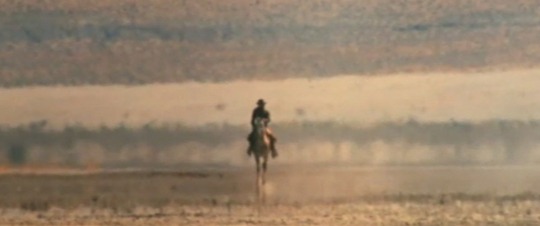
14. ACID EASTERNS
Earl trekked to the East and squinted into “one beacon in the dust weaving”—like Clint Eastwood arriving out of the hazy horizon ether of High Plains Drifter (1973). But Earl is heading to the East, blackwards. And though Brother J claimed you can’t define what’s direct from the East, Jeru told us on The Sun Rises in the East that you can’t stop the prophet either. So on “EAST,” Earl traverses a tricky terrain—it’s tricky, tricky, tricky because it’s an acid western landscape: an acid eastern.
The path isn’t direct or linear—it zigs and zags like rolling papers, and stimulates the same. “Double back when you got it made,” Earl says at the start of his journey “EAST.” The objective is to talk sense condensed into the form of a poem like Special Ed once did on “I Got It Made.” Instead, Earl’s poems—his L=A=N=G=U=A=G=E poems—skew [non]sense, go form[less], and vaporize rather than condense. Lyn Hejinian in cinnamon Timbs: “constant change figures / the time we sense.” The narrative is hallucinogenic (note: “how the story careen against the bars”). Earl’s bindle contains “thirty racks and weed [with] no fat in the collard greens.” That’s how he gets funky on the mic like an old batch. That’s how he gets sincerity on the mic: “Off top it’s me—no cap, / I don’t bottle things.” That buck that bought a bottle could’ve struck the lotto, maybe. But Earl’s “canteen was full of the poison [he] need[s].” He gets where he’s going like El Topo, bereft. The “trip was long and steep”—that being an acid trip—so let me see you try to ride a horse into the chasms of the canyon.
“EAST” is a death meditation, a grand duel between Dantean and Donneian lyric voices [he damn-near well should’ve double-tracked the vocals]. In a 2015 interview with SPIN, Earl is asked about the worst thing he did that year, to which he replies: “Umm…acid?” He elaborates: “I took it at a time when I really didn’t need to be taking acid. I had like a fucking existential crisis at, like, four in the morning. But it was tight. We reeled it back.” Jodorowsky called El Topo (1970) an “eastern” in that it “incorporat[ed] ancient eastern wisdom in the materiality of American cowboys.” For Earl, it’s more a rhinestone cowboy—he holds the cold one like he holds an old gun (as evidenced in the “EAST” music video). DOOM was no stranger to grief, of course, and the rumors persist regarding the bad acid that precipitated Subroc’s early demise (“Bad Acid” also being the original title for “December 24”).
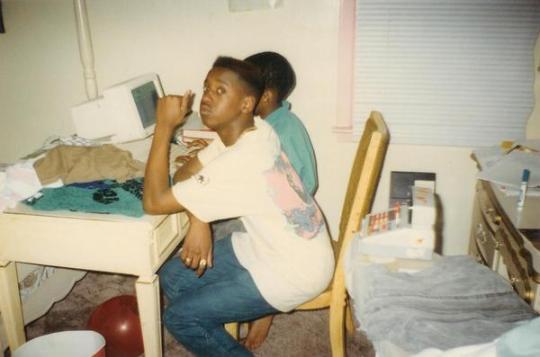
Estranged Earl, alienated—a high plains drifter (not Clint Eastwood, though) who rechristens a town “Hell” through a baptism of blood. Like the Beastie Boys’ version, Earl pulls out a pair of pliers and pulls a bullet out of his chest. He pulls through, true and living. “I’m long distance from my girl,” Mike D raps, so he’s “talking on the cellular,” but Earl is more alienated than that—beyond racking up roaming charges, immersed in dead zones. He “lost [his] phone and consequently all the feelings [he] caught for [his] GF.” Relationships can’t be sustained in these bleak and barren locations. All the blood has been drained from the ruddy faces—sanguine scenery. In his essay “On the Acid Western,” Jonathan Rosenbaum discusses how the subgenre “refuses to respect or valorize bloodshed.” Memory really leaking blood. Congealing. Stuck. To paraphrase Rosenbaum, Earl’s acid eastern “formulat[es] a chilling, savage frontier poetry to justify [his] hallucinated agenda—a view at once clear-eyed and visionary, exalted and laconic, moral and unsentimental, witty and beautiful, frightening and placid.” Earl’s “innocence was lost in the East,” and obsessives speculate whether this refers to Samoa or New York City—how far east we going? Countless spirit-questers pit-stopping at ashrams, searching for that Gifted Unlimited Rhymes Universal guide.
“I wait a beat,” Earl says. His canteen stays filled, auto-replenishes. His “cognitive dissonance shattered” and the “necessary venom restored.” Jodorowsky reportedly once taped snakes to his chest for an experimental theater performance. As if it matters if you think it matters anymore. Or, as ELUCID says, “Words mean things but don’t have to.” Acids and bases. Occident and Orient. Western and Eastern. Up is down.
15. NOTHING LIKE US EVER WAS
Earl’s “EAST” accordion beat—or whatever Orkes Gambus Al Fata instrumentation is at work—is more madcap than madvillainous. In my head is Erick Sermon, though, speaking about how “the flow slow…like a jazz player, or someone on the accordion” on “Knick Knack Patty Wack.” But I’m less concerned with the flow of air through bellows—compressing and expanding—than I am with Earl’s rendering of wind. (Somebody tooted.)
“Let the dead be dead,” Carl Sandburg says at stanza’s end in “Four Preludes on the Playthings of the Wind” (1920). Later, he reports, “The only singers now are crows crying.” And so Earl, a lonesome crow, reminds us—and himself—that “the wind get the ashes in the end” on “December 24.” The whining, wheezing consonance of /-nd/ in “wind” and “end” manages to evoke both the wind itself and the circularity of life. The bar whooshes and whips until we’re at our end, the terminus. That circularity, that full circle: ashes to ashes. “We are the greatest city,” Sandburg repeats, “the greatest nation: / nothing like us ever was.”
Global winds be blowin’—[Of the Soul]—and so billy woods cites that same line on “Haarlem”: “Thebe said the wind get the ashes in the end, bruv.” Check the configuration of the rhime:
The wind | gets | the ashes | in | the end
{birth} {life} {death}
Even that get does work—whether it’s the violence of Death Grips’ “get got”; Too $hort threatening you to “get in where you fit in”; or the satirical sadism of Keenen Ivory Wayans’ I’m Gonna Git You Sucka. The wind wins out—it gets what it wants. On “EAST,” the wind—infinitely personified—“whispered to [Earl], ‘Ain’t it hard?’” It ain’t hard to tell that it is. How about some hardcore? Yeah, we like it raw like M.O.P. But those burns yield ashes. In Adrienne Rich’s poem “The Burning of Paper Instead of Children” (1989), she struggles with the words she uses, knowing “[t]his is the oppressor’s language / yet [she] needs to talk to you.” I know it hurts to burn, she writes, but writing is no less ardent. “The typewriter is overheated, my mouth is burning.”
Let me bring it back to Robert Bly. “In the ancient times,” Bly says, “the movement for the men was downward—a descent into grief. It’s referred to in the fairytale as ‘the time of ashes.’” Ashes, he explains, is the “code word for the ‘out of it’ time.”
We know what it is like to take ashes in our hands. How light they are! The fingertips experience them as a kind of powder… Ashes, we note, find their way into the whorls of our fingertips, cling there, make the whorls more noticeable, more visible, more clear to us. We can take our own fingerprints with ashes.
Ashes, then, aren’t simply for the wind’s taking—ashes are for us, are necessary for us to transcend the grief the boys, the men, and the man-child experience. Bly points to the various cultures that have used ashes in initiation rites: “Ashes Time is a time set aside for the death of that ego-bound boy.” Ready to give up, so you seek the Old Earth. The elders cover your face—even your whole body—with ashes “to make [you] the color of dead people and to remind [you] of the inner death about to come.” Consider Earl’s ashen white face produced in the negative imagery of the “Grief” music video.” “The word ashes contains in it a dark feeling for death,” Bly says. “Ashes when put on the face whiten as death does.”
Earl Sweatshirt is a far cry from knocking blunt ashes into caskets.

16.
Feet of clay, hands of light…
—Moor Mother and billy woods, “Furies” (2020)
For Cheryl I. Harris, Earl’s mother, the feet of clay refer to a vulnerability we all possess no matter how formidable we may appear to become. Earl invokes the King of Babylon’s dream, a dream of an idol “meant to represent all the empires of the world,” echoing Sandburg’s imperious “greatest nation.” Earl believes “we at the feet of clay right now…We posted up live from burning Rome.” Imagine the ash pile. So Earl is here, ostensibly, to turn the disco into something dismal—how Mtume becomes “MTOMB” with its entombed sonics, as if he’s rapping from within a wall, the victim of some Poe immurement.
17.
“I remember woods,” Earl raps on “OD.” “I remember Endom when he wasn’t remembering much, / I remember love healing the ruptures.” I remember is also the refrain and title of Joe Brainard’s poem-memoir, a term which aptly describes much of Earl’s recent output. Brainard’s memories bum-rush into the present:
I remember a dream I used to have a lot of a beautiful red and yellow and black snake in bright green grass.
I remember painting “I HATE TED BERRIGAN” in big black letters all over my white wall.
I remember liver.
If Earl recalls love “healing the ruptures,” then he also likely recalls Fanon: It is essential to convey to the black man that an attitude of rupture has never saved anyone. But Fanon also speaks of young Black men “maintain[ing] their alterity. Alterity of rupture, of conflict, of battle.” Earl, “feeling rushed, grew up quick.” He echoes Biggie, who “grew up a fucking screw-up,” and Raekwon, who “grew up on the crime side” (though Earl’s mama taught him, as we know from “Grief,” how to avoid the pigs, persecution, and prosecution). Eyes on the clock, Earl acknowledges this “trip around the sun” is his “25th,” so “give it up”—his survival alone deserving of a standing [on the corner] ovation. He celebrates life with “gin and rum.” Again, notably not gin and juice—murder was never the case. The only death is the inner death, the death of the ego-bound boy, that Bly describes. Earl’s gin is the drink of be[gin]ning, of genesis (“Light them Phillies up then…”), of Super Nintendo, Sega Genesis, when I was dead-broke, man… “We wasn’t supposed to be alive,” Earl says, yet here he stands.
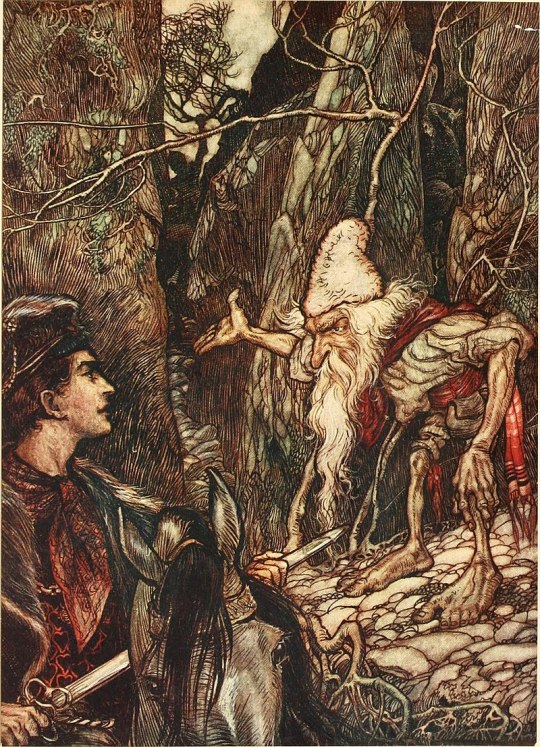
18. RUMINANT
Stare at the Feet of Clay album cover—an evocation of folkloric imagery: a Grimm forest with gnarled tree branches—and the enchanted, diabolic goat lying in wait. Earl’s parasocial following speculate G.O.A.T., of course, but I’m more inclined to mythopoeic possibilities. The Feet of Clay goat glares like Baphomet but frolics like a faun over fractured beats. “OD,” Earl has stated, “brought [him] up out of [his] little wreck”—a wreck of wracked nerves. Adrienne Rich encourages “diving into the wreck” (1973).
I am blacking out and yet
my mask is powerful
it pumps my blood with power.
Earl’s right there with her, submerged and blacking out, but still surviving: Really leaking blood, but refilling the pump.
In her essay “Teaching New Worlds/New Words,” bell hooks invokes Rich’s struggle to navigate the “oppressor’s language.” For hooks, as a Black writer, managing that is even more difficult and historical. “I think now of the grief of displaced ‘homeless’ Africans, forced to inhabit a world where they saw folks like themselves, inhabiting the same skin, the same condition, but who had no shared language to talk with one another, who needed ‘the oppressor’s language.’” hooks explains how Black folks have “remade that language so that it would speak beyond the boundaries of conquest and domination.”
Earl Sweatshirt, especially in his later work, has “altered [and] transformed” English, just as “enslaved Black people took broken bits of English and made of them a counter-language.” The emotional wreckage is also a linguistic heap of fragments—micro-fragments, if we’ve learned anything from Saafir. Earl, in the tradition of his ancestors, “put[s] together [his] words in such a way that the colonizer ha[s] to rethink the meaning of the English language.” “The grammatical construction of sentences in these songs” by Earl, just as by the spirituals of hundreds of years prior, “reflect[s] the broken, ruptured world of the slave.” That crumbling empire Earl mentions was faulted by feet of clay.
At the Museum of Contemporary Art in Los Angeles in 2019, sharing a dais with his mother, Cherly I. Harris, Earl spoke to this lineage directly: “Rap music is slave music—the modern-day iteration of it. Slave communication had to be encrypted. You got a code.” He shifted: “If I know what I’m saying…I can teach it to you.” On Feet of Clay, Earl is teaching to transgress. “I’m cracking my own code,” he says to an audience member during the Q&A, “how it comes out garbled…,” and then he trails off, as if making a deliberate effort to keep his answer cryptic.
hooks always saw language as “a site of resistance.” This included the incorrect usage and placement of words—she called such practices a “rebellion.” Weaponizing syntax. hooks recognized rap music as a continuation of this fight—the latest [sound]clash, hip-hop artists as rebels without a pause—while still acknowledging the collateral damage it might cause.
Rap music has become one of the spaces where black vernacular speech is used in a manner that invites dominant mainstream culture to listen—to hear—and, to some extent, be transformed. However, one of the risks of this attempt at cultural translation is that it will trivialize black vernacular speech. When young white kids imitate this speech in ways that suggest it is the speech of those who are stupid or who are only interested in entertaining or being funny, then the subversive power of this speech is undermined.
Or, as Earl once said on “Chum,” “Too Black for the white kids and too white for the Blacks,” an axiom he’s come to loathe. Perhaps Fanon had the better bar on this subject: “The white man had the anguished feeling that I was escaping from him and that I was taking something with me. He went through my pockets. He thrust probes into the least circumvolution of my brain. Everywhere he found only the obvious. So it was obvious that I had a secret.”
Despite the pitfalls (and, yeah, the pit is bottomless), Earl’s words play [wordplay] a part in retraining minds, all while exorcizing his own demons through a steady diet of ashes and fractures. hooks promises us that “in the patient act of listening to another tongue we may subvert that culture of capitalist frenzy and consumption that demands all desire must be satisfied immediately.” Through his embrace of a language that indulges in passion and cerebral coding, Earl “heal[s] the splitting of mind and body” so common within Western metaphysical thought. Earl Sweatshirt speaks “words that do more than simply mirror or address the dominant reality”; he builds blips into a reality that is worth the rewind.

Images:
Dead Man, dir. Jim Jarmusch, 1995 (screenshot) | Teen at 1990s computer photograph, Unknown (c. 1996) | James Joyce, Age 2, Unknown | ELUCID, Osage album cover (2016), photo by Michael Mally, Philadelphia Inquirer | The Boxer at Rest, bronze statue, Palazzo Massimo alle Terme, Rome, Italy (330-50 BC) | Alphonse Legros, The Pit and the Pendulum, second Plate (1861) | High Plains Drifter, dir. Clint Eastwood, 1973 (screenshot) | Subroc on an Apple IIc, Unknown (c. 1987) | Earl Sweatshirt, “Grief” music video, 2015 (screenshot) | Arthur Rackham, The Water of Life, Grimms Fairy Tales (1916) | Dead Man, dir. Jim Jarmusch, 1995 (screenshot)
124 notes
·
View notes
Text
Armand Hammer - Total Recall
14 notes
·
View notes
Text

Billy Woods
#billy woods#elucid#hip hop#art#armand hammer#backwood studio’s#alchemist#fineart#fashion#soundcloud
14 notes
·
View notes
Text

Armand Hammer - Shrines
Signed by billy woods and E L U C I D
8 notes
·
View notes
Text
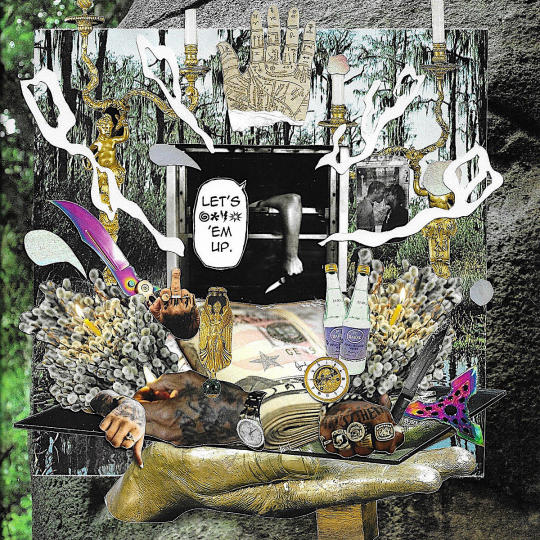
"Don't Play It Straight"
13 notes
·
View notes
Photo
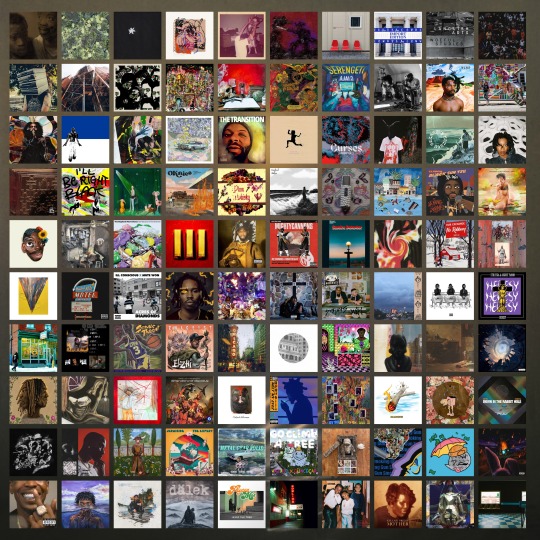
100 of my favorite Hip Hop Albums of 2022
Might be excessive but there was simply just a ton of music this year that I enjoyed and found myself going back to, and I believe each of them is worth checking out. Each of the album titles here also links to either a bandcamp page or stream where you can listen to the project. Hopefully you’ll at least find one new album that you enjoy here, and as always feel free to reply with what you enjoyed and connected with the most this year. I’d love to know, and any other recommendations are definitely appreciated.
This was an incredible year for new releases, not just for hip hop but for music in general which is why i’ll be posting another top 100 list for all of the non hip hop stuff I enjoyed from this year, hopefully in the next few days. Peace.
Chart w/ titles included
2022 Hip Hop Spotify Playlist
1. Billy Woods & Preservation - Aethiopes
2. Avantdale Bowling Club - TREES
3. Cities Aviv - Working Title For The Album Secret Waters
4. MIKE - Beware of the Monkey
5. ELUCID - I Told Bessie
6. AKAI SOLO - Spirit Roaming
7. Teddy Faley - Teddy Brown Brown
8. Defcee & BoatHouse - For All Debts Public and Private [IMPORT EDITION]
9. Ka - Woeful Studies / Languish Arts
10. J.I.D - The Forever Story
11. Open Mike Eagle - Component System with the Auto Reverse
12. billy woods x Messiah Musik - Church
13. Danger Mouse & Black Thought - Cheat Codes
14. ShrapKnel - Metal Lung
15. SolarFive & Iceberg Theory - Momento Mori
16. Moor Mother - Jazz Codes
17. Serengeti & Child Actor - Ajai 2
18. Infinity Knives & Brian Ennals - King Cobra
19. Joshua Virtue - RAMA
20. Zilla Rocca & andrew - Don't Wait For Me to Leave
21. Fly Anakin - Frank
22. Cities Aviv - MAN PLAYS THE HORN
23. KILLVONGARD - I Think I've Lost It.
24. R.A.P. Ferreira - 5 to the Eye with Stars
25. Illogic - The Transition
26. Quelle Chris - DEATHFAME
27. Bloodmoney Perez - Curses
28. Fatboi Sharif & Noface - Preaching In Havana
29. Ockham's Blazer - Ockham's Blazer
30. Little Simz - NO THANK YOU
31. Theravada - Strange Voice
32. amani & robalu - I'll Be Right Black
33. Jam Baxter – Fetch The Poison
34. OKnice - Have You Tried Being Happy?
35. Davis & Foule Monk - Plum Whisky
36. Noveliss - Vagabond
37. SHIRT & Jack Splash - I Turned Myself Into Myself
38. Moses Rockwell - Until You Run out of Cake
39. Ja'king the Divine - 手术: BLACK SUN TZU
40. Archibald SLIM - Worldly Ways
41. NNAMDÏ - Please Have A Seat
42. YUNGMORPHEUS & Theravada - Up Against the Wall; a Degree of Lunacy
43. Roc Marciano & The Alchemist - The Elephant Man's Bones
44. Nas - King's Disease III
45. Lord Kayso - MOOR CHORES
46. Ace Cannons & MIGHTYHEALTHY - Mightycannons
47. Rich Jones & Iceberg Theory - Smoke Detector
48. Lukah - Raw Extractions
49. Nicholas Craven & Boldy James - Fair Exchange No Robbery
50. Ghais Guevara - There Will Be No Super-Slave
51. Lupe Fiasco - DRILL MUSIC IN ZION
52. Milc & Televangel - Neutral Milc Motel
53. ILL Conscious x Mute Won - Acres of Diamonds
54. L'Orange & Solemn Brigham - Marlowe 3
55. $ilkMoney - I Don't Give a Fuck About This Rap Shit
56. Teller Bank$ & Ed Glorious - The I & I
57. Wiki & Subjxct 5 - Cold Cuts
58. Love, Ulysses - 61,265,147
59. Vic Spencer & August Fanon - Psychological Cheat Sheet 3
60. Stik Figa x August Fanon - Heresy
61. Raz Fresco & Nicholas Craven - Boulangerie
62. QThree - U Be Ight
63. Wrecking Crew - Sedale Threat
64. eLZhi & Georgia Anne Muldrow - Zhigeist
65. Apollo Brown & Philmore Greene - Cost of Living
66. miles cooke - i used to feel things
67. Mr. Muthafuckin' eXquire - I Love Y.O.U cuz Y.O.U Ugly Vol.1
68. demahjiae - Angels Wear Black
69. AJ Suede & Televangel - Metatron's Cube
70. Sacco & Vanzetti - It's Not Paranoia If They're Really Out To Get You
71. Mavi - Laughing so Hard, it Hurts
72. Rhys Langston - Grapefruit Radio
73. Steel Tipped Dove & Aloe Vera - Days Pass Strange
74. PENPALS - Dimensions of Dialogue
75. Malachi. Whitman - Happy Place
76. Denzel Curry - Melt My Eyez See Your Future (Extended)
77. Lungs/LoneSword, Phiik & Cise Greeny - Where Are The Bugs!?
78. Pink Siifu & Real Bad Man - Real Bad Flights
79. Andrew - The Rain Knows What It's Doing
80. Mattic & Parental - Down In The Rabbit Hole
81. Boldy James & Futurewave - Mr. Ten08
82. Ransom & V Don - Chaos Is My Ladder
83. Torito & Small Professor - Soiled
84. Jermiside & The Expert - The Overview Effect
85. big kahuna og & graymatter - METAL GEAR SOLID
86. Duncecap & Hajino - Go Climb A Tree
87. Earl Sweatshirt - Sick!
88. Deca - Smoking Gun
89. Freddie Gibbs - Soul Sold Separately
90. Mickey Diamond & Big Ghost Ltd - Gucci Ghost
91. Rome Streetz - KISS THE RING
92. Redveil - learn 2 swim
93. Daniel Son - The Bush Doctor
94. Dälek - Precipice
95. Jesse the Tree - Pigeon Man
96. Jason Griff - Fireside Chats 2
97. Benny the Butcher - Tana Talk 4
98. Killah Priest - Mother
99. Lord jaH-Monte Ogbon & Sadhugold - The Black Möbius
100. Kipp Stone - Room 109
#music recommendations#favorite albums of 2022#2022 hip hop#billy woods#avantdale bowling club#joshua virtue#AKAI SOLO#ELUCID#cities aviv#JID#teddy faley#defcee#shrapknel#black thought
59 notes
·
View notes
Text

Omega Radio for February 11, 2017; #132.
Kool A.D. f. Loren Hell & Amaze 88 “Youth Speaks”
Unified Highway f. The Grouch & Zion I “Same Thing Coming”
Ho99o9 “Day Of Vengeance”
Elucid “House Keys”
Benny B. Blonco “You Can Make A Change”
Chynna Rogers “Flatline”
Range, The “Five Four”
Kaiydo “Jumpin’”
Drew Howard “You’re Not My Mans”
Benny B. Blonco “Globetrotters”
Goon Des Garcons “Back On The RD”
Time “World War Me”
Ephalent “Letter To A Hostage”
Elucid “Slumped”
Benny B. Bionco “Pray”
Show Me The Body “Aspirin”
SZA f. Kendrick Lamar “Babylon”
Bobby Raps & Corbin “Frozen Tundra”
Linafornia “Hi Shrimp”
Shabazz Palaces “The Mystery Of Lonnie The Don”
Elucid “Cap Weave”
Token “Self-Taught”
SpaceGhostPurrp “Movin’ Weight”
Linafornia “Brownies”
Denzel Curry “Ultimate”
Miss Red “No Guns”
Techno Animal “Dead Man’s Curse”
Lampgod “Papermate”
LNDN DRGS “Dope Sick”
Noname Gypsy “Yesterday”
Deluxe street sounds and beats.
#omega#music#playlists#mixtapes#hip-hop#rap#street#beats#LNDN DRUGS#Techno Animal#Denzel Curry#SpaceGhostPurpp#Shabazz Palaces#Kendrick Lamar#SZA#Elucid#Ho99o9
3 notes
·
View notes
Text
7 notes
·
View notes
Text
9 notes
·
View notes
Text



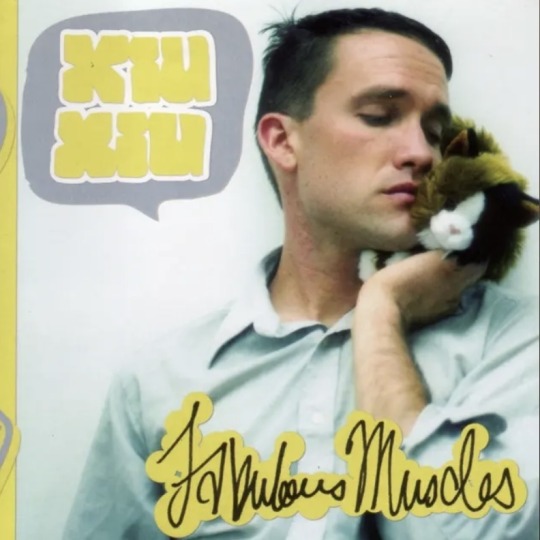
Listens of da week! 03.17.24 - 03.23.24
Top Left: We Buy Diabetic Test Strips (feat. billy woods & E L U C I D), Armand Hammer, billy woods, & E L U C I D
Top Right: Ramda, Mice Parade
Bottom Left: Life is a Moracle, Glow Curve
Bottom Right: Fabulous Muscles, Xiu Xiu
Quite an odd mix of sounds, but like when is it not ajdjasdsbjjf. Also planning on doing a little writeup on my fav underrated female jazz artists in honor of Women's History Month! ~so that'll be coming soon!! :D
3 notes
·
View notes
Text
Spittin' Wicked Randomness with Small Professor
or, Bizarre Rides II the Pharthest Cyde;
or, A beginning doesn’t need an ending, only a portal

Make your body a temple. Make your home a shrine. You are a God, live like one!
—Timothy Leary, “You Are A God, Act Like One!” (1967)
Psycholinguistic structural confusion leads to insidious beat wrecking missions and continuous speech recognition, prescription, vocal anecdotal object impressions…. Synergistic sample arrangements.
—Jungle Brothers, “Trials of an Era” (1993)
EXORDIUM
I long for the anonymity the internet once provided. Everyone was faceless. Vacant visages—not even an avatar. I’ll often try to remanufacture this premillennial experience for myself. I deliberately avoid seeking images to accompany the names I see on the screen. Many people nowadays—most people, the writer bemoaned—make this nearly impossible. Vanity of vanities—all is vanity! But I do try, I do. I look away; I increase the scroll speed; I squint to blur and becloud. Like Iris DeMent desired, I try to let the mystery be. On Rakim’s plodding “The Mystery (Who Is God?),” the God MC suggests you can solve the mystery if you realize the answer revolves around your history. But I need the mystery to stay intact. So many years on, and I’m still figuring out da mystery of chessboxin’, looking all the way back to when Wu-Tang was in black hoodies on the man-sized chessboard—cloaked rooks shouting peace to all the crooks with bad looks. “You cannot hook up a 100 million years of sensory-somatic revelation to your puny, trivial personality chess board,” so says Timothy Leary. I’m inclined to agree.
Aside from his music, I’ve known Small Professor—Jamil Marshall, if we split the veil—only through his words, through his text on my chosen screens: pixelated patterns of character images. But late last year, I stumbled across an image of him appearing not unlike a cloaked rook. Draped in a black robe, Small Professor appeared beside his Wrecking Crew brethren as a Sith Lord. The occasion was a Halloween performance at Cratediggaz Records in South Philly. Small Professor’s face was hidden, and so I could fuck with this type of qualified exposure. His shrouded appearance elevated my intrigue rather than diminished it. This was no flashbulb, soul-capturing, photographic evidence of existence; this was no selfie self-absorption; this was simply some spooky shit.

Of the many messages that Small Professor measures out into the ether[net], the ones that have frequently caught my attention make some mention of hallucinogenic drugs. Here again, we have [e]strange bedfellows—that being technology and drugs. Twinned conceptualizations: drugs as teknology; teknology as drugs [scanned as tricknology, too, two]. Programming in the Silicon [Uncanny] Valley with the capital-I Internet reformatted as a Third [Eye]nternet. You scream as it enters your bloodstream. “Build, elevate to a higher comprehension, / Let your third eye rise above evil interventions,” if we’re properly tuned in to the Jungle Brothers’ “Troopin’ on the Down Low.” Teknology and drukqs might be more familiar than we (Eye) thought.
As we know from Jesse Jarnow, psychedelic saints were known as “heads,” which, underground hip-hop stalwarts of a certain age will wreckonize as an honorific for their own dedication to a way of life and listening. Stewart Brand, author and publisher of the Whole Earth Guide, would later speak of computers and online communities as the most auspicious collective force “since psychedelics.” Hua Hsu brings this to my total attention, but with my full cooperation (word to Def Squad), so there’s a few more things I’d like to mention. Computer science research centers saw networking and information sharing as devout acts “borrowed directly from Deadhead communalism.” Again, not dissimilar from the tape trading so crucial to the spread of this thing of ours called hip-hop. John Morrison writes of how “hip-hop owes much of its early development and propagation to an underground economy,” to the “recording and circulation of cassette tapes of park jams, live battles, DJ sets, and radio broadcasts” that brought a burgeoning and insurgent art form to the masses. The backchannels and clandestine conduits that made this dissemination possible suggest a secret organization with figures like Geechie Dan and Elvis “The Tapemaster” Moreno as its stewards. These cross-cultural, cross-generational connections exist despite Jerry Garcia’s abhorrence of rap as a legitimate musical form [see below: “Deadhead” diss-poem]. Small Professor centers himself within the radial lines of this complex mandala. His production isn’t strictly for the psych heads, or the hip-hop heads—his musick is For the Headz at Company Z.
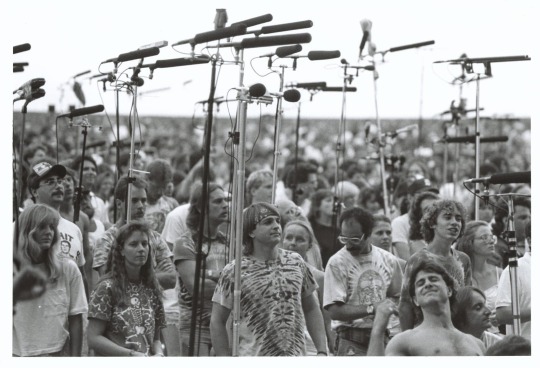
Small Professor understands the possibility and catalytic practices of rappers, much like William S. Burroughs did: “With computerized tape recorders & sensitive throat microphones we could attain insight into the nature of human speech & turn the word into a useful tool instead of an instrument of control in hands of a misinformed and misinforming press.” Somewhere you can hear the echoing call of Newwwspaaaaperrrr from the Jungle Brothers’ “Book of Rhyme Pages,” a song with a prophetic register, a song that reads.
In Burroughs’ essay “Academy 23: A Deconditioning,” which appeared in the San Francisco Oracle (c. 1966-1968), the beatific junky proposes that “academies be established where young people will learn to get really high…high as the Zen master is high when his arrow hits a target in the dark…high as the Karate master when he smashes a brick with his fist…high…weightless…in space.” As high as Wu-Tang get, I might add, Allah allow us pop this shit. Burroughs believes it’s “[t]ime to look beyond this cop rotten planet.” The students in Academy 23 “would receive a basic course consisting of training in the non-chemical disciplines of Yoga, Karate, prolonged sense withdrawal, stroboscopic lights, the constant use of tape recorders to break down verbal association lines. Techniques now being used for control of thought could instead be used for liberation.”
Small Professor is already present in such an academy, his “lab”—be it Albert Hofmann’s Sandoz Laboratory or RZA’s antediluvian lab. Like Bobby Digital, Small Professor experiences the “Lab Drunk,” the studio stupor: Stumbled into the lab half-drunk—honey-dipped, stinking blunts. The neural activity of Madlib’s psilocybin; the mind expansion of MKUltramagnetic; outlaw practices: tripping on LSD or sampling on an MPC—same diff, really. “The experience,” Leary wrote in the East Village Other, “must be communicated, harmonized with the greater flow.”

PART I
[December 23, 2023 | 9:10 PM]
Small Professor: Ah, fuck. I was supposed to plan this out. Just took 2 tabs to the dome officially at 9:00 PM. At some point tonight I will be looking around at my room like I just got here from outer space.
[10:14 PM]
Caltrops Press: Where’s your head at right now?
SP: Difficult to see. Always in motion is the right now (to paraphrase Yoda). Right now I am listening to “Right Now” (HAIM, live).
CP: Are you alone?
SP: I believe that to be true, but we can never be 100% sure, can we? I don’t presume to speak for you of course, but I’d wager that you may have, at least once, considered that The Truman Show could be real life, after all. According to this, though, yes:
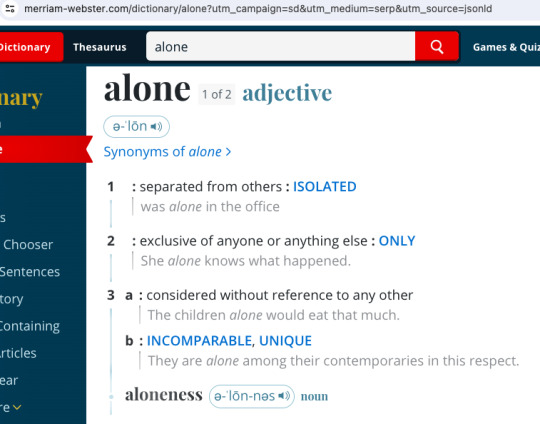
CP: Somebody once said, “Every day is Truman Show. True men show their face and expose flesh…” Do you think acid allows you to see beyond this reality?
SP: No. It allows me to see this one more clearly. Time, or whatever it is that we collectively agree is this forward feeling momentum, seems to slow. So you (me) see the same things that you see everyday, but that your brain kinda knocks aside after a while. Things look new.
CP: Are you typically playing music when you trip? Does the music slow down? Not literally. But do you process it differently? And, of course, I’m curious if you ever try to make music in this state?
SP: I like making music that barely makes sense in whatever state I’m in at that time, so when I come back to it I’m even more confused. Like leaving yourself a drunk voicemail, but on purpose. I’m generally high—it’s just a matter of how. And to the last question: Do or do not, there is no try.
PremRock: I think [Small Professor's] work has benefited from discovering [hallucinogens]. He’s pretty passionate about ’em! I think it’s made him more expansive and he’s more eager to try far out ideas. He was always psychedelic in nature, but this just provided more of a conduit.
Zilla Rocca: Even without shroomz he always had a bugged-out sense of melody, rhythm, and layered samples. Smalls has always been a seeker. We connect like that. We love unearthing old rap to learn from it while appreciating all the new styles.

When brothers start buggin’, I bug the most.
—Jungle Brothers, “Simple As That”
CP: I’ve never fucked with psychedelics, so I generally have either a romantic or sensational notion of what it must be like. Have you ever had any experiences where things went really weird, or have you ritualized it enough so that you know what to expect? Like it’s become yoga or meditation for you by this point.
SP: Yeah, it’s pretty meditative. The first time I had acid was so surreal that nothing else could dream to compare.
CP: When was that? Do you still remember the details?
SP: Well, first of all, I couldn’t have started such a journey without such caring guides, for they did not have to take time from their lives to explain how much to take, how much not to, to be mindful of the kind of media you’re ingesting while in that space—like nothing too scary and shit like that. They specifically said, “Maybe watch a comedy tonight. Something on the lighter side of things.”
CP: I’ve heard that’s important, having a guide.
SP: So I believe I initially started off with the smallest amount I could take, cuz I didn’t know any better. But the effect was immediate. I remember going outside and just standing in an empty parking spot in front of my crib and watching it rain. It was night already. I was like, Wow, this is the best rain I’ve ever seen, and I’ve seen a lot of rain. And then I went out to get more tree. On my way home though, so…okay. How do I explain this? So, my Lyft driver on my way back to my house, he and I strike up a conversation. At the end of our talk, which included a phone call to someone of high stature in the 5% community who spoke to me directly, I embarked on the path to knowledge of self.
CP: Like, sincerely? Or only until you stopped being high?
SP: Well, I know now it started there. But I’ve always known that I am god, in some way. It’s just that, after you find out, what do you do with that knowledge of your own god-dom? That’s one thing I can appreciate about psychedelics. It’s like, Alright, well, if I know my brain is capable of such a thought or a piece of music in this one state, then I should be able to get back to it.
CP: I get that. Like, “I’ve done this before, so I can surely do it again.” But, for so many artists, they struggle to capture whatever it is. I know a lot of times I’ll look back on something I’ve written and then ask myself, How did that even happen? Because the process—the making of something—is often so unconscious.
Curly Castro: Smalls calls me after the fact (bka “a trip”) and regales me with a cornucopia of odd and odder occurrences. I will say that one time [redacted] and that’s when [redacted] and what could say after [redacted]. I just told him, Say Less.
CP: How long will this trip last? You took two tabs at 9 PM, and it’s been 4.5 hours.
SP: Oh, I’ll be up for a while. Night hasn’t even begun.
CP: I need to crash because I’ve got to be up early. But keep dropping whatever random thoughts you have here. We’ll call this Part 1.
SP: Fantastic, Pt. 1
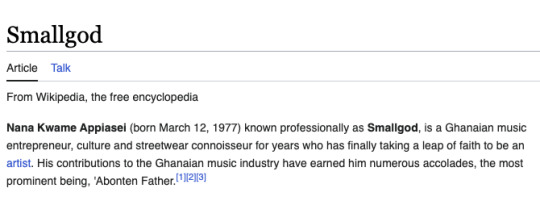
SP: “God is never small.” Those are the words that man said, and my reply was, “...I am? I am. Ohhhh. I am.”
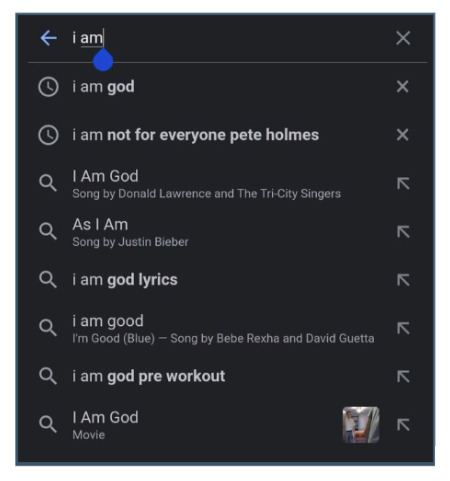
[Small Professor links me to a video showing Donald Lawrence & The Tri-City Singers performing “I Am God.”]
SP: Also, I’m quite proud of the fact that my government name [Jamil], oddly Arabic considering how Christian my dear mother is, quite literally translates to “Beautiful Ruler,” with my first name actually meaning “god” in certain places (“Jamil” is one of Allah’s 99 aliases—I found that out earlier this year). My mom HATES THIS BOYEEEEE. She thought it just meant “handsome.”
SP: Words mean things but don’t have to.
SP: [Denmark Vessey & Scud One’s Cult Classic] (This is my official trip soundtrack.) “Throw bricks at him if you can’t build wit ’em, / Whoever marquee, top bill, I’ll Kill Bill ’em.”
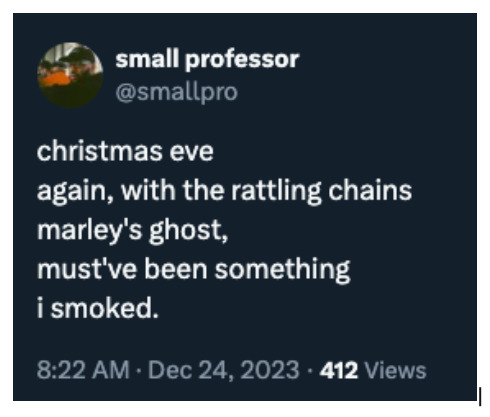
SP: It’s 8:23 AM. Still trippin’.

PART II
[December 24, 2023 | 9:15 AM]
CP: You awake? If so, talk to me about “Dettol.”
SP: I feel like that beat was made along with a few others in that same span of time with Roc Marci in mind. Not only in terms of the drum un-emphasis but also being intentional about giving an MC room to operate, to breathe. On Midnight Marauders, both “Electric Relaxation” and “Lyrics To Go” are special beats because they operate within the parameters of 4/4 time but the bar lengths aren’t the typical 8. On “Dettol,” you have mostly 8-bar loops until it shifts to 12 for one measure, and then it starts over. (Not sure about my beat math there.) So the Armand Hammer guys had to each approach that in their own way. Couldn’t have drawn it up any better. “Numbers look crooked like King Kong shook it.”
CP: (That’s your second Slum Village reference in this convo.) Paraffin was the first album I heard by them, so that beat would’ve been the third Armand Hammer song I heard overall. And that “giving them space” idea definitely benefited me—a guy who hadn’t been paying attention for years, specifically because lyrics weren’t grabbing me like they used to.

The psychedelic experience is not just an internal, private affair. The “turned on” person realizes that he is not an isolated entity, a separate social ego, but rather one transient energy process hooked up with the energy dance around him.
—Timothy Leary, “You Are A God, Act Like One!”
CP: How did you originally connect with woods and ELUCID?
SP: I may have been aware of ELUCID as early as 2005 by way of his Tanya Morgan/Lessondary/Okayplayer fam associations, but 2007 when he dropped Smash & Grab is when I instantly knew, Ah, this guy’s one of the best rappers ever. By 2009, that became, The best ever. That was the Myspace era, so we connected on there musically but also on some homie shit. We were working on a song of his in like 2011 or ’12 for the BIRD EAT SNAKE mixtape, “Dumb Out.”
ELUCID: BIRD EAT SNAKE is a whole lifetime ago. I had just met woods. I was also just beginning to develop the Cult Favorite record with AM Breakups. I was super charged creatively and was fortunate enough to have a lot of space to develop that. “Dumb Out” was such a strange beat that made my pen move immediately. Nothing overthought or drawn out. Just really chunky, vibed out, and punchy energy. I just began to acquire these attributes during the making of that tape.
CP: “Don’t eat the brown acid…”
SP: Originally woods was supposed to be on there. I distinctly remember this being one of the first times I heard him because…okay. He recorded a verse on this beat and ELUCID sent his acapella but no reference to guide from. And I’m very good at matching up acapellas, so the fact that I could make no sense of his flow—where to place it in the mix—always stuck out to me.
CP: Is that why he didn’t end up on the song?
SP: I don’t believe so. That would be funny if true, though. Because it feels like I have more music with those two than what tangibly exists.
CP: Also funny because, as their audience has grown—exponentially of late—the “discourse” returns to whether woods raps “on beat” or not.
SP: Once I understood that the question of if he’s rapping on- or off-beat is the wrong one—when it should be, Why do I hear this as off-beat? How do I hear what he heard to deliver it that way?—that’s when it clicked for me.
CP: Was “My Blank Verse” your first beat for them officially?
SP: That was the very first song me and ELUCID made together. Don’t think it was for anything in particular, initially.
CP: Got it. So it wasn’t approached as an Armand Hammer track, per se. Just ended up on an AH project. When did you connect with ELUCID in person?
SP: I wanna say I met him in person at a show in Philly, at the Khyber. But the time I remember the most is when I was in Brooklyn with him (this actually might have been when we met up to record “My Blank Verse”), and he showed me the block where B.I.G. grew up. I like to imagine my power levels increasing on that day due to the residual holy hip-hop energy on the premises.
CP: That’s dope. I’m surprised to hear you recorded the track in person. Both because so much is done remotely now—the producer and the MC separate—and also because ELUCID, I’ve read, is pretty private when it comes to recording. Maybe that came later, though.
SP: Yes, that did come later to my knowledge. But also, I’m special.
ELUCID: This was the era when Willie Green’s studio was still in his apartment. I had just started recording with Backwoodz, and “My Blank Verse” was indeed recorded that afternoon. I usually don’t have people hanging in the studio while I record, but I think my comfort level with Jamil speaks to the ease I feel in our dealings.
SP: I also remember going to meet ELUCID in New York specifically to get a flash drive that had he and woods’s verses for the Sean Price “Midnight Rounds” song they all should have been on together. His internet was down.
CP: Why didn’t that track come to fruition?
SP: woods’s hook was an interpolation of Apache’s “A Fight” (because, midnight rounds). The label was like, “Oh nah!” Word for word! Bar for bar! Sean P would have appreciated it.

CP: Jersey’s own.
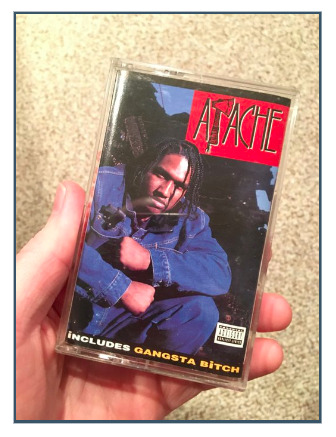
billy woods: At that point in my “career,” I was kinda disappointed to get cut but not surprised. I guess I had a long history being snubbed regularly by peers and institutions in the indie music scene, so it just seemed like, Yeah, more of the same. I was pleasantly surprised to be invited, and unpleasantly unsurprised to be disinvited.
SP: So, kept ELUCID’s verse and subbed in my man Castle, making this song the spiritual successor to a track I did on me and Guilty Simpson’s Highway Robbery, also featuring those two. Things fall apart, but they also come together. How they’re supposed to.
CP: What’s the story behind “No Grand Agenda”? Also, where are we at in terms of the trip?
SP: It’s slowing but at a light jog now. The beat for “No Grand Agenda” was originally part of an album I did made up entirely of exactly 1-minute long songs called You’re Killin’ Me Smalls. There were 60 songs. ELUCID was one of the only rappers I sent it to, specifically because it wasn’t “supposed” to be for raps. I had an ex who stomped out my computer and hard drives one day, including the original files for this project. All except for that one.

SP: “Are we sure there’s no grand agenda?” And ELUCID took my stems and arranged it how he heard it. It was meant to loop in on itself, like the other songs on that project. It was originally named “Kelvin Spacey,” and I’m sure I’m misremembering but I wanna say “Dettol” was originally named “Kelvin Duckworth,” if only to verify Zilla Rocca’s guess that I was the producer in question that had sent woods a beat named after his favorite Portland Trailblazer.
CP: So you’re saying, like any good friend, ELUCID jacked that beat?
SP: Oh, I remember him asking to rap on it, perhaps for nothing in particular at the time. But who am I to deny the goat? And it’s obvious to me that this is how it was supposed to go; ain’t nothing coincidental or accidental, dunn.
ELUCID: The making of “No Grand Agenda” was a cornerstone for a foundational era of style for me. I felt like I made a song that seamlessly weaved both verse and chorus in a way that felt absolutely hypnotic. It was a new belt for me, this sense of control. Small Pro was one of the first producers to trust me enough to send his beat stems. During this period is where I began producing more of my own music, so I also wanted to arrange the song how I heard it. Thankfully, Jamil dug it.
CP: What do you like about ELUCID’s rapping?
SP: Some of it is the voice. Some of it is the things that he’s saying. But mostly, my favorite rappers all share this in common: they can get busy on any style of beat, any tempo, any sound, any Small Pro time puzzle. I was listening back to his older stuff a little while ago and heard him doing whole specific styles on one song, and never doing it again. The versace, versace flow, in particular. It felt like he was bored at the time and peered ahead three years to see how everyone was rapping, came back, did it, and that was that.
ELUCID: [Working with Small Pro] is a special thing. Something that I’m still exploring. I think a Small Pro x ELUCID tape would be ill. Knowing his attention and care in the translation of my bars and flows is the type of partnership real MCs aspire to. It just hasn’t happened yet!
SP: He and woods both have had a way of inspiring me through specific lines. “Go where the drummer commanded me,” for example. It’s me. I’m the drummer. And woods, a few songs before “Dettol” says, “Beg producers to take out the drums,” which he said was meant to be a joke, but I took it literally and started making beats that could exist with or without drums equally.
All of my Backwoodz-related songs are credited as “Small Pro,” not “Small Professor.” I was on shrooms the week after my birthday earlier this year when I realized those are now different entities. Especially because woods was once like, “Wait, you did ‘No Grand Agenda’?” And I was like, “I did….I think? No, that was Small Pro.”
The last full project I—or I—did before moving back to Philly was a reimagining of A Jawn Supreme 1-3 from the Small Pro remix perspective. It was my—or my—first time remixing my own music, hearing things without the drums I put on them originally. It was an enlightening time. I hear voices at the fortress.
CP: I think it’s rare for a producer to be so attentive to what the MCs are saying, let alone to look at what they’re saying as guideposts. The idea of a differentiation between “Small Pro” and “Small Professor” is interesting. Where does the Small Pro path ultimately lead? Into this larger Armand Hammer universe?
SP: I feel like when I started out making beats my natural inclination has been to make things as busy as possible. Small Pro is like, What if I take away instead of adding? Or, How can I still have a million things going on in the track but it sounds bare or like, not done? “My girl say this beat sound unfinished, / I said, ‘Yeah, that’s where my voice go.’”
SP: (Not sure when I passed out. I knew the crash was inevitable.)

[December 24, 2023 | 6:47 PM]
SP: To your point about it leading to the AH-verse, that may be part of it too. They’ve both inspired me as rappers but also their production decisions and choices—ELUCID quite literally, as his production has always confounded me, but woods too. Two producers who have had just as much an influence on me as anybody I worshiped when first starting out are August Fanon and Messiah Musik—modern legends. Fanon can make beats for literally anyone. But Messiah’s natural style is one that both Hammers can sound great on from the get-go, whereas I have to consciously get myself into that mode. They also both sometimes do odd and potentially challenging things regarding time in their beats, as I do, but in their own way.
CP: Do I remember seeing you mention somewhere that you still use Fruity Loops and Cool Edit?
SP: Yup. I wanna say since 2008. Well, technically since 2003. But I’ve been using the same versions of those two programs for a minute now. Still using Windows XP, too. It’s comforting to me. And ridiculous. Like Rasheed Wallace faithfully wearing Air Force 1s his whole playing career.
CP: I love that. Some real “if it ain’t broke don’t fix it” ethos. Any rules for yourself when it comes to sampling? Strictly vinyl or are you irreligious when it comes to source format?
SP: 98% of my beats are made from mp3s. The remaining fraction is YouTube or some other source. Haven’t used vinyl for sampling purposes in many years but ironically try to make my beats sound like vinyl. As far as rules, everything I thought was law were things I later learned the musicians I look(ed) up to sneered at.
CP: Ain’t that the truth. Very little is sacred when it comes to process, I find. That’s a lot of ego. What efforts do you make to have the beats “sound” like vinyl?
SP: On “Dettol” is my go-to record crackle sample. That’s also in 98% of my beats, and something I specifically remember was like, corny or something, but—ah, here it is: Slum Village reference #3 to fulfill the rule—on “Hold Tight” Dilla uses a needle pop as a snare bolster as well as the accompanying static. It’s there for added depth and texture but also can act as a counter-rhythm to your percussion. Reality features an inherent level of static in the form of cosmic microwave background radiation around us at all times. Art imitates life.
[December 25th, 2023 | 11:41 AM]
CP: “No Christmas this Christmas…”
CP: I always like to think of the story—apocryphal or not—of Evil Dee using bacon grease hissing on the stove for extra crackle.
SP: The turntable hum is freakable too. Makes for a great bass sound but also something you can feel.
CP: Do you ever have acid trips accidentally interfere with other obligations? I imagine you’re always planning for a blocked out number of hours. But best laid plans…
SP: There’s a recovery period the next day, so that can be interesting to navigate. But yeah, I usually am in my room avoiding external interactions on whatever kind of trip it is. In my experience with acid, you gain more control over your “self,” and shrooms is the opposite, where your sense of self and awareness is reduced. Go home, brain—you’re drunk.
CP: The loss of control is something I just can’t handle. Have you ever found yourself in a situation on shrooms where you emerge later, like, “Damn, that was a bad look”?
SP: Yeah. My first time taking an 8th to the face (I ate it on a burger) after getting to and past the point of looking in a mirror and not recognizing my face for a sec. I later came upstairs and my BM had made some, like, lasagna? And it was so good that I’m just there demolishing it over the stove—like I was Garfield. Her friend walked in the kitchen at that moment and I should have been mortified, but in that moment there was only delicious lasagna.
CP: Real Gs move in silence like lasagna…
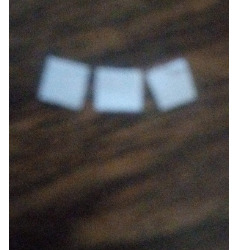
CP: Listening to Terror Management on Xmas morning. Is “Marlow” your beat/song with the most synchronicity between you and the rapper?
SP: It’s up there. That album is interesting to me because of the repeating motif of having two beats from different producers for one song—always thought that was cool. The intro on that beat had the spoken part added after the fact, so it did really feel like some good ole fashioned teamwork.
CP: And specifically the serendipity of you naming the beat for your late father, correct? I imagine an artist won’t typically name their song after the name of the beat. Was there a reason you named that beat, out of so many, after your father?
SP: Originally it was a play off of the artist’s name I sampled (a lot of my song titles are born this way), but I can also say it makes me think of my father’s dark side. He was one of the happiest, generally cheerful people I’ve ever known, but I’ve seen him go into green belt mode when pushed too far—only a few times, but it was like, Oh snap.
woods closed his set with “Marlow” at a Philly show last year shortly after my pops passed, and it’s one of the nicest gestures anyone has done for me. I was at the bar crying like a newborn fucking baby, god.
billy woods: That was a special moment for me, too. I really love that song. Pro and I have not worked that much together, but a lot of what we have done is really dope. He has produced a handful of Armand Hammer songs but they all hit, in my opinion. But [“Marlow”] is a song I really love and has come in and out of my setlist, but always makes it back in. The fact that it happened at that moment, and that it had that extra meaning for him was an honor for me.
SP: That album [Terror Management] as a whole has always intrigued me because of the repeating motif of two producers each having a beat on one track (this happens on some Armand Hammer albums too, now that I think about it, but it’s a different effect when it’s two MCs on each beat instead of one).
CP: Lots of doubles—the name, the sides of your father, “Small Pro” versus “Small Professor,” two beats, etc. Double-consciousness, perhaps. Not necessarily in a Du Bois sense; more so in the sense of realities.
SP: I’m all about man’s rugged duality.
CP: Did you and your father connect over music?
SP: Oh, absolutely. Our music rooms were down the hall from one another when I got started in college, and over the years he would start wandering in to hear what I was working on. Eventually, as he started transitioning into working in DAWs, he would ask for advice with things he knew I would be able to help with. He loved showing me whatever he was working on, and I knew he valued my opinion as one of the people responsible for a lot of my music edumacation in the first place.

[December 26, 2023 | 12:26 AM]
CP: Would you reciprocate and show him what you were working on? Did he look upon hip-hop favorably?
SP: He was from probably the last generation that didn’t grow up with hip-hop, and by and large it was probably offensive to him on two fronts: as a pretty religious dude the language and subject matter was too much, and musically all he heard were the loops, repetition, and sounds he loved and recognized being used all over again in an inferior, simple way. (I found a lot of the samples from Mobb Deep’s second album amongst his tape collection.) But over the years, as he saw how seriously I took it—as well as being impressed as a person who played 7-8 instruments by what I was able to do with two computer programs and mp3s—he was able to appreciate it as an artform (at least, the production side) even if it wasn’t quite his thing.
He’s also half the reason I’ve always been enamored with non-common time signatures, a key feature in a lot of the music he dug—that Weather Report, Yellowjackets, Return to Forever, Herbie Hancock, Steely Dan, late ’70s, early ’80s chamber. My mother was more into “traditional” jazz and classical. They shared gospel personally—and professionally—as working church musicians. On my first album, there’s a 5/4 beat that I remember excitedly showing him because it took me forever to get the chops lined up in an un-choppy fashion, and there’s a switch on there between drum pattern grooves much like what you would find on a jazz fusion-type song. I felt like if I could impress him, I must be doing something right. The last time we hung out before the cancer did him in, he was showing me how far he had gotten learning how to play drums, and I got on the sticks and tried to replay the patterns on some of my beats (emphasis on tried). The “trouble don’t last” jawn, in particular, to which he responded by telling me I was already a drummer. Memories live.
The times I saw his email pop up in my Bandcamp purchase notifications, I figured it was just a proud dad supporting his firstborn…nah, he was actually listening. His favorite project was the album I did along with my group Them That Do, which was my version of Madlib’s Shades of Blue on the beat tip. Besides digging the actual sound (updated jazz rap), I think he was most taken by the fact that he couldn’t quite tell what was sampled from where and that I had made all these sound from sometimes vastly different records seem like they were supposed to be together, and the beats made sense from the perspective of a person who understood music theory.
CP: “I said, Well Daddy, don’t you know that things go in cycles.” Beautiful that you guys got to share those moments.
SP: (I even said the part about two beats on Terror Management twice.)
SP: My brother (the actual drummer of the family) just sent me “Spain” by Chick Corea, one of our dad’s favorites. Speaking of my brother—who I credit with teaching me how to program drums and how to count bars and all that—one time we were on our way to church with my dad, and Steely Dan’s “Black Cow” was on. Pops started to try to explain the lyrics, what a “black cow” was, why they were very high…all that.
So a few years back I was proud to send [my father] “Gas Drawls” from Operation Doomsday because this story has always cracked me up, but also that’s a great-ass sample chop (and one that he appreciated, as opposed to the time my broski and I were buggin’ out over the beat for Jay-Z’s “Kingdom Come” and he was like, Is nobody doing anything original anymore?).

[December 28, 2023 | 12:56 AM]
CP: You should’ve sent him Lord Tariq and Peter Gunz after “Gas Drawls” and been like, “See.” As a drummer, does your brother fall more in line with your musical tastes or your father’s?
SP: I’d definitely say my brother has a much more diverse and varied musical vocabulary/understanding/tastes than I. We both grew up hearing, and then eventually listening, to rap. Twenty-three to twenty-four years ago when the neo-soul era was beginning, we were smack-dab in the middle of it, in the literal eye of the storm. Things Fall Apart, Like Water For Chocolate, Black on Both Sides, Reflection Eternal were just coming out. Musiq Soulchild was on the radio. Voodoo (which I didn’t get into until much later when I listened to it riding through Zanesville, Ohio countryside in 2007 [it’s still “Brown Sugar” over everything, though]) was everywhere. But there was also his actual school music education from primary to college, as well as listening to people from all instinctive travels and paths of rhythm, so he knows it all—or because he’d be like, “Shiiii, no I don’t!—a bit about a bit.”
I keep saying “my brother” when I have two. My younger bro is the drummer but my older brother’s tape collection was everything in high school (actually, even before that I was stealing his It Was Written tape when I was in seventh grade to play on the way to school). Being eleven years older, he was in high school when the great 90s east coast revolution was happening, and his Nike shoebox archives reflected the sounds of the time. As far as his tastes go, if DMX was still with us and dropped an album today, he’d get it without a second thought.
[December 28, 2023 | 11:10 PM]
CP: Sorry to trail off. Got a bit busy on my side. Would you be down to hit me with a handful of your most interesting beat names at the moment?
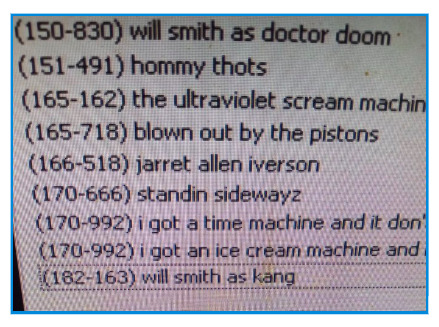
CP: This is art.
SP: The “Will Smith as…” series is new. They all slap.
[Small Professor posts a since-deleted message on X quoting Werner Herzog talking about stealing a 35mm camera from a Munich film school. The quote: “I don’t consider it theft. It was just a necessity. I had some sort of natural right to this tool. If you need air to breathe, and you are locked in a room, you have to take a chisel and hammer and break down a wall. It is your absolute right.”]
CP: I love this. “A natural right” to make something. Like a compulsion within. (I also love Herzog, so I appreciate the anecdote.) Do you remember where you first acquired that cracked Fruity Loops (and maybe Cool Edit, too)? If I think back, I probably had a friend hand me a disk, a CD-RW, back in like 1999 or something. God knows what sketchy site he downloaded them from.
SP: In college when I first started doing beats, I torrented everything—movies, programs, especially music—with nary a second thought. It’s a good way to give your computer a bad cold, which I did on several occasions. And I too appreciate Herzog because I love no myth more than my own as well.
CP: Have you got any myths on par with rescuing celebrities from wrecked cars or nonchalantly brushing off bullets to your abdomen?
SP: No, but I can say I did albums with both Sean Price and MC Paul Barman.
CP: Indisputable. I think this is an appropriate spot to (un)officially close this. Anything else you want to talk about?
SP: Gotta give a shout-out to the Jungle Brothers for making Crazy Wisdom Masters in 1991. PremRock told me legend was that they made it on shrooms and when I listened to it on acid I was like, Oh, yeah, y’all were high as fuck when this was made. I could tell not only because the music itself is bugged out but even the pace of the record is accelerated. They had some songs on there that were a minute-and-thirty-seconds but so much was going on , sometimes different things in either stereo channel that it gives off the effect of being on a trip and you’re noticing—for what feels like the first time again—that everything is happening everywhere at once.
Listen to Crazy Wisdom Masters when you get a chance. It’s a personal classic that I’ve listened to at least fourteen times this month. Warner Brothers did them dirty (this was their M.O. apparently—this was the same time period they were beefing with Prince) by delaying the entire record two years and having them clean up the tracks, and disrupting the carefully curated listening experience by taking tracks away and rearranging the entire thing. J Beez wit the Remedy, the resulting hodgepodge, would drop on my birthday in 1993, and when I first heard it, I was like, Hmm, something’s awry here, and that’s how I found out about Crazy Wisdom Masters.
CP: I think I downloaded it or thought about downloading it recently when people started talking about it again. Is there a “definitive” version to look for? I know Bill Laswell had uploaded a version to his Bandcamp page a while back.
SP: That’s a good question. The version I found that concludes with “For the Headz At Company Z” is the album as the god(s) intended.

Just as Small Pro is distinguished from “Small Professor”, “Crazy Wisdom Masters” is a distinct personality from “Jungle Brothers.” Small Pro is a definitive, lost Laswell version—a ra ra kid who catches wreck with randomness. He doesn’t channel, but grooves, as the most psychoactive Afrika Baby Bam and Mike G doppelgänger. We end up doubled-over; “dope-sick,” if you will. You sleep on it, then you wake up in the morning and dwells on it, as Small Pro casts his spells on it. (It’s as Simple As That.) SP’s Comin’ Through, and when he does, multiple realities accelerate as he explores radical possibilities. He’s chewing on the chemicals and raising up the levels on the decibels. We—his audience of lab assistants, his dilated pupils [and peoples]—“experience the ultimate, the infinite.”
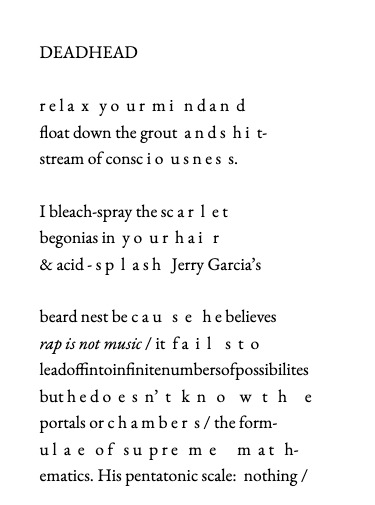
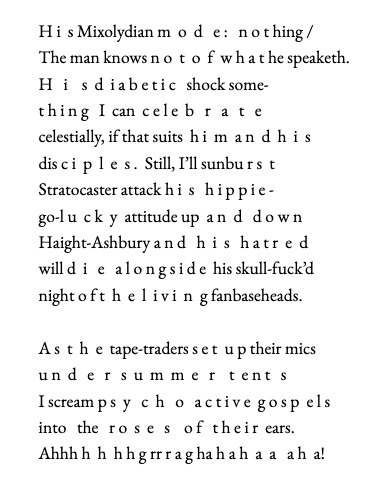
Images:
Most images are from the Vol. 1, No. 10 October issue of the San Francisco Oracle or unknown issues of the Chicago Seed | Small Professor “Sith Lord” photo courtesy of Matthew Shaver for WXPN | The Grateful Dead tapers section photo, Unknown | Screenshots by Small Professor | Apache tape photo by Caltrops Press | Gilbert Shelton, “The Fabulous Furry Freak Brothers,” East Village Other (detail) | “Deadhead” poem by Joseph Rathgeber
#small professor#backwoodz studioz#underground hip hop#elucid#billy woods#zines#armand hammer#wrecking crew#zilla rocca#premrock#curly castro#acid trip
7 notes
·
View notes
Audio
Billy Woods & Kenny Segal - As The Crow Flies (ft. ELUCID)
32 notes
·
View notes
Text
#AKAI SOLO#Spirit Roaming#Armand Hammer#billy woods#E L U C I D#Elucid#Upper Room#Messiah Musik#Backwoodz Studioz#Hip Hop#Music#Bandcamp
31 notes
·
View notes
Text
Armand Hammer, Quelle Chris, and H31R at Bowery Ballroom
On Thursday, November 16, 2023, New York City’s Armand Hammer performed a sold out show at Bowery Ballroom in support of their newest album, We Buy Diabetic Test Strips, that is out now on Fat Possum Records. The show was a part of their tour which was called “We Buy Diabetic Test Strips: The Physical Experience.” Silka performed a short set as well before Armand Hammer took the stage.
The duo were joined by H31R (JWords and Maassai), who released their new album the following day, and Quelle Chris, who brought out special guest Cavalier during his set. I covered the show for Impose Magazine and the full gallery is now available on their website here.
#Armand Hammer#billy woods#Elucid#Quelle Chris#H31R#Bowery Ballroom#Maassai#JWords#Fielded#Backwoodz Studioz#Cavalier#Silka
3 notes
·
View notes
Text

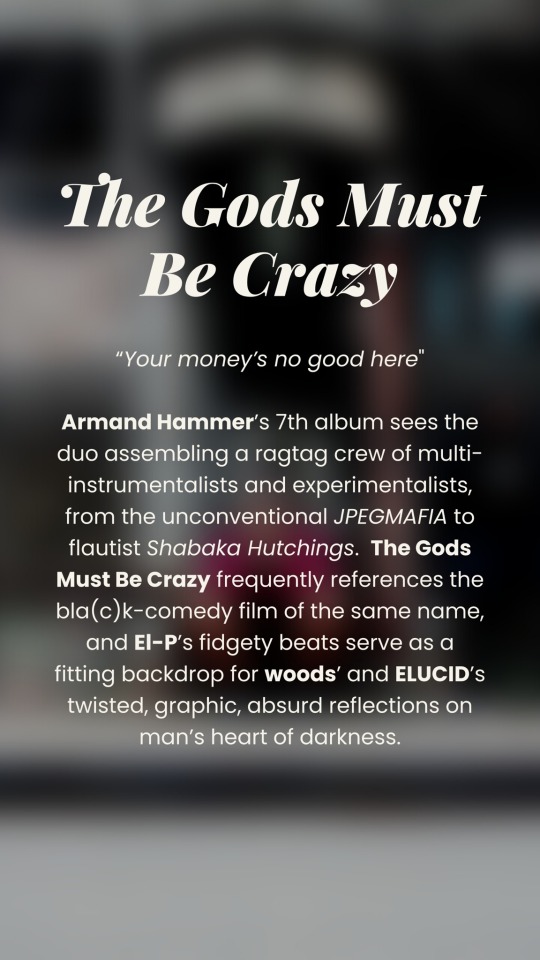
Otherworldly beats from El-P, absurdist poetry from Billy and Elucid - this is surely the quintessential alt-hip-hop single of the year (with one notable exception (more on that later))
Playlist:
#music reviews#new music#soty#2023 music#hiphop#alt hip hop#underground rap#new york rap#armand hammer#billy woods#elucid#el p#Spotify
3 notes
·
View notes